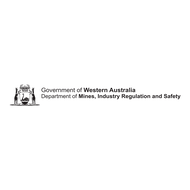For petroleum and geothermal industries
| Date: | Wednesday, 01 July 2015 |
|---|
WA will have the most stringent well integrity and resource management conditions in the country when new regulations for the petroleum and geothermal industries come into effect from today (July 1).
Western Australia will have the most stringent well integrity and resource management conditions in the country for its emerging shale and tight gas industry when new regulations for the petroleum and geothermal industries come into effect from today (July 1).
Department of Mines and Petroleum executive Director of Petroleum Division Jeff Haworth said these regulations complement the existing safety and environmental regulations.
“While WA’s natural gas from shale and tight rocks industry is in the early stages of exploration, with any significant commercial production predicted to be about five to ten years away, it is important that a robust regulatory framework is in place,” Mr Haworth said.
“The State Government understands community concerns associated with hydraulic fracturing and strengthening regulations and ensuring best practices are implemented is critical to addressing these concerns.”
Before drilling operations are approved DMP assesses applications to ensure work is conducted in accordance with good oil field practices and in a way that reduces the risk to the environment.
“The department will ensure any future projects are assessed on a site-by-site, project-by-project basis with safety and environment auditors conducting inspections to check compliance with safety and environmental standards,” Mr Haworth said.
“As part of the approvals process, companies are legally required to provide an environment plan that assesses the potential impacts on groundwater, as well as flora and fauna.
“All companies are required to submit a list of all chemicals to be used in all well operations. This information is available on the DMP website. WA is the only jurisdiction in Australia requiring full public disclosure of chemicals.”
Mr Haworth said the State is well positioned to learn from experiences in other jurisdictions and to adopt international best practice standards to further strengthen its robust regulatory system ensuring the environment and communities are protected as this new industry is developed.
“With the new regulations now in place DMP is confident it can strictly regulate a shale and tight gas industry without compromising the environment or safety to successfully maximise possible future economic opportunities for all Western Australians,” he said.
DMP received significant input on the consultation draft of the regulations and supporting guideline documents, and many of these have been incorporated into the regulations.
“Further to this, earlier this year a meeting was held by DMP with the Shale and Tight Gas Inter-Agency Working Group, comprising representatives from the Departments of Water, Health, Environment Regulation, Agriculture and Food, Parks and Wildlife and State Development to discuss the changes.”
A multi-agency regulatory framework for shale and tight gas is also being developed to assist industry with the changes to the legislation.
- The draft Petroleum and Geothermal Energy Resources (Resource Management and Administration) Regulations 2014 cover the WA State petroleum sector onshore and State waters, and will provide a risk-based management scheme for the exploration for, and production of, petroleum and geothermal energy resources.
- The onshore resource management and administration regulations will form the third and final part of the suite of regulations that commenced in 2010 with the introduction of two onshore safety regulations - Petroleum and Geothermal Energy Resources (Occupational Safety and Health) Regulations 2010 and the Petroleum and Geothermal Energy Resources (Management of Safety) Regulations 2010.
- In 2012, onshore environment regulations commenced with Petroleum and Geothermal Energy Resources (Environment) Regulations 2012.

